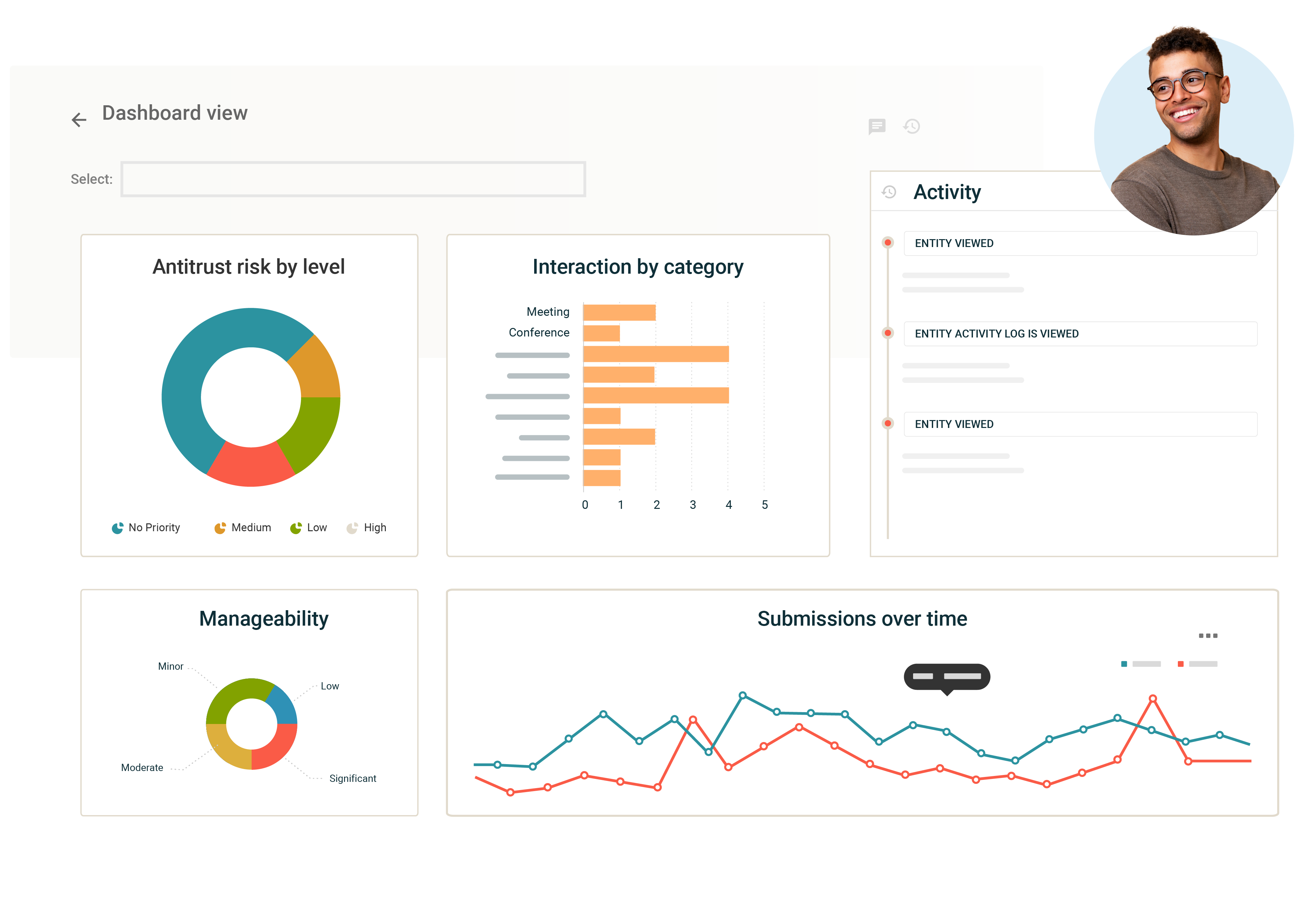Healthcare
Compliance Solutions for the Healthcare Industry
Benefit from a centralized and data-driven approach to corporate compliance, ethics and third-party risk management – trusted by major healthcare organizations around the globe. Capture a sophisticated picture of overall regulatory risk and compliance in one place.

Why leading healthcare companies rely on GAN Integrity
GAN Integrity is how compliance teams at healthcare companies get the tools and expertise to stay ahead of risk. With less effort and more reach, you finally get a better way to do your good work.
See everything – Gain a comprehensive view of regulatory risk and compliance in one centralized platform.
Adapt to anything – Leverage dynamic workflows and integrations to stay ahead of regulatory changes and evolving program requirements.
Get all the help you need – Receive dedicated support from GAN Integrity’s team of experts.
Compliance challenges for the healthcare industry

As a compliance professional in healthcare, it can feel like you’re facing an unfair fight. You must navigate a constantly evolving landscape of regulations, including HIPAA, the Sunshine Act, and the Affordable Care Act, requiring continuous education, policy management, and the implementation of robust compliance programs to mitigate non-compliance risks.
Major challenges include data security, patient privacy, and digital risks. Collaborating with IT teams is essential to protect sensitive patient data and maintain compliance with federal, state, and local regulations. Healthcare organizations rely on third-party vendors for critical services ranging from billing to medical supplies, making vendor compliance crucial to avoid legal and financial repercussions.
Key areas of compliance in healthcare
Healthcare organizations are complex enterprises. There’s many areas of compliance, ethics, and risk that need to be managed, spanning everything from Environmental, Social and Governance (ESG) to Data Privacy to Anti-Bribery And Corruption (ABAC). These include:
- Training and Education: Continuous training and education of the healthcare workforce, ensuring that employees have access to the most up-to-date policies and educational resources.
- ABAC Compliance: Ensuring that anti-bribery and anti-corruption (ABAC) laws and standards are upheld.
- Data Protection and Security: Safeguarding sensitive information in an increasingly digital landscape and ensuring compliance with data privacy regulations such as HIPAA.
- Third-Party Risk Management: Managing risks with your third-party vendors to ensure partners adhere to regulatory standards.
- Workplace Safety: Implementing standards for a safe working environment.
- Supply Chain Due Diligence: Ensuring suppliers comply with laws and standards. Due diligence may now be expected deeper into the supply chain beyond tier 1.
- Incident and Case Management: Addressing and mitigating incidents of non-compliance, conducting investigations, implementing corrective action plans, and reporting to regulatory bodies.
- Environmental Compliance: Adhering to regulations such as ESG aimed at minimizing the impact on the environment from healthcare activities.
Steps to achieving compliance in the healthcare industry
Achieving compliance in any organization involves a series of strategic steps:
Compliance in the Healthcare Industry
Risk Assessment
Identify potential compliance risks specific to your healthcare operations.
Objective Setting
Define clear compliance goals that align with your operational objectives.
Documentation
Maintain thorough records of compliance efforts and decisions.
Training
Educate employees about compliance requirements tailored to the healthcare industry.
Monitoring and Auditing
Regularly review compliance status and adjust practices as needed.
Reporting System
Establish clear channels for reporting issues and disclosures.
Issue Response
Quickly address non-compliance issues to prevent disruptions.
Continuous Improvement
Regularly update compliance practices to stay ahead of regulatory changes.
GAN Integrity for Healthcare Organizations
GAN Integrity helps healthcare providers navigate these challenges with a unified, easy-to-use compliance platform that organizes requirements, automates tasks, and provides powerful reporting, making it easier for you to do your good work. With GAN Integrity, compliance teams can see everything, adapt to anything, and get all the help they need.
Disclosure Management
Consolidate your disclosures for conflicts of interest, gifts, travel, entertainment, and political and charitable donations, sponsorships, or contributions. Capabilities include:
- Policy management: Develop and enforce comprehensive disclosure policies. Educate and engage your workforce with targeted training and policy attestations.
- Flexible disclosure process: Simplify the submission of potential conflicts of interest with user-friendly forms, ensuring easy access for employees.
- Automated approvals and reviews: Enhance compliance with automated approval and review workflows. Quickly escalate notifications to relevant stakeholders to address potential risks.
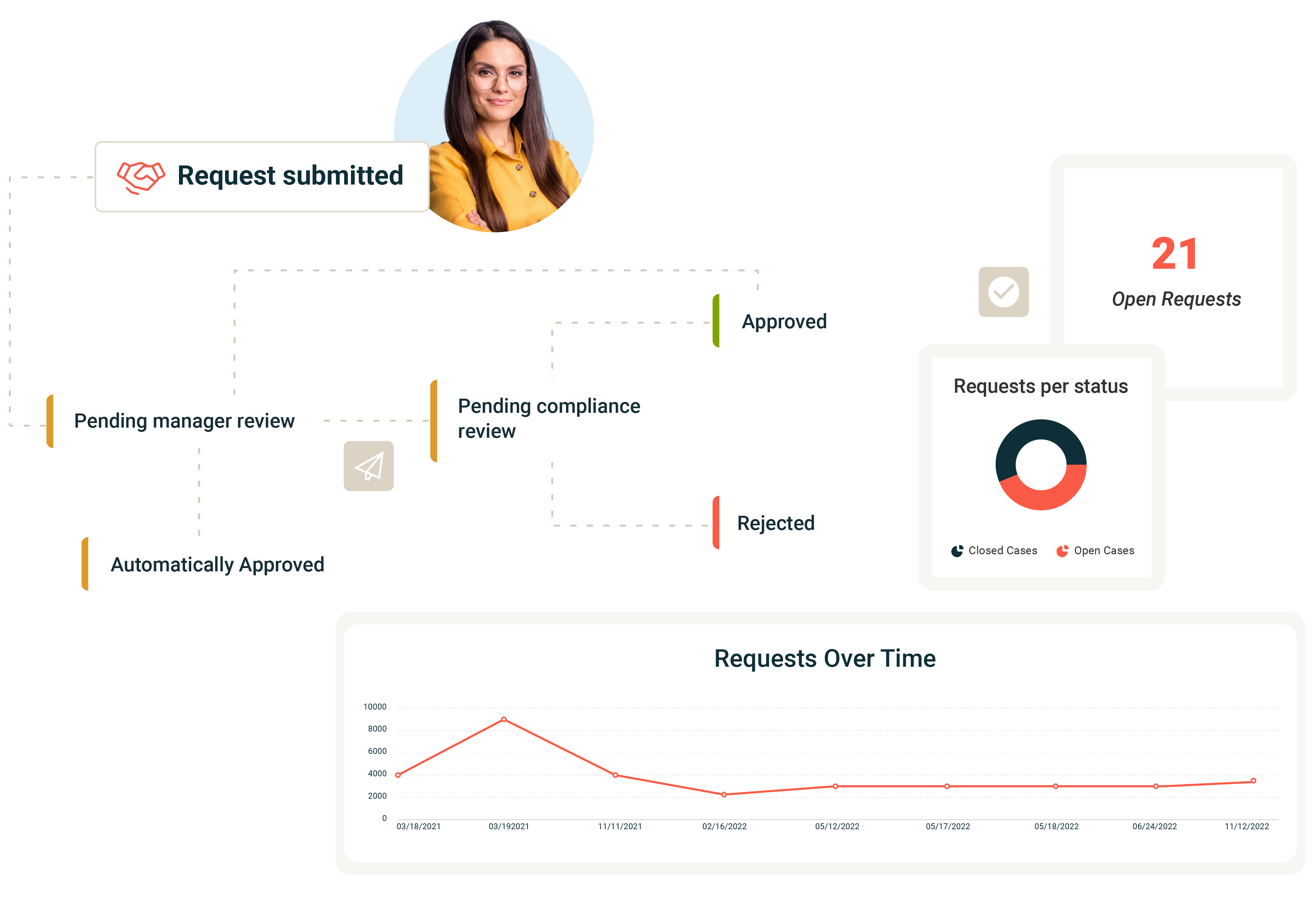
Gifts and Entertainment
Manage gifts and entertainment disclosures with an easy to use, configurable platform. Capabilities include:
- Flexible processes: Adapt disclosure intake forms and workflows to your business processes.
- Campaign management: Set up campaigns to inform and engage employees in your disclosure program.
- Third-party risk integration: Track gifts and entertainment disclosures against third parties and suppliers for a holistic view of risk.
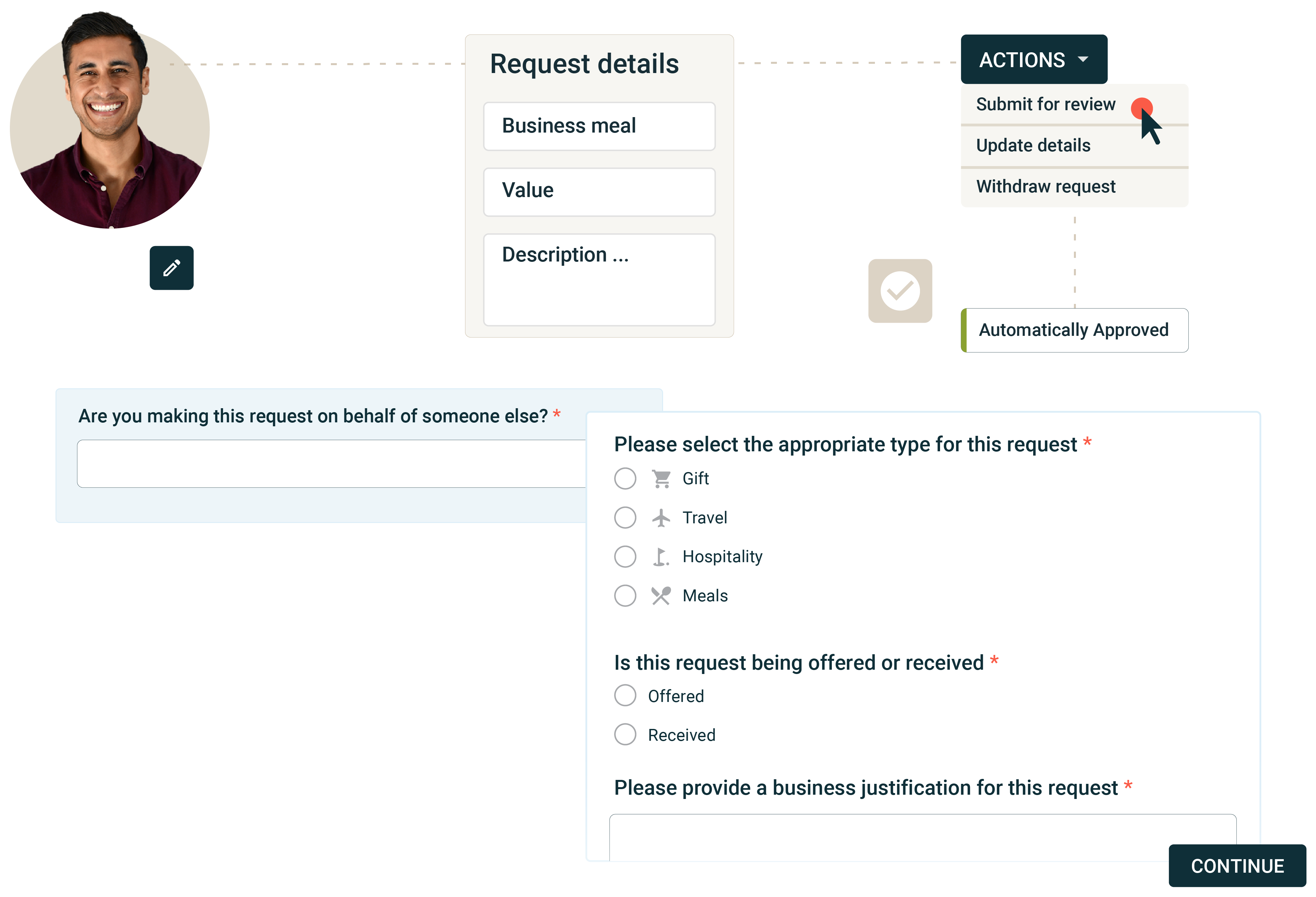
Third-Party Risk Management
Manage risks associated with third parties and assess these against relevant laws and organizational standards. Capabilities include:
- Lifecycle management: Automated workflows for onboarding, risk assessment, issue management, monitoring and off-boarding.
- Integrated due diligence: Initial and ongoing screening of third parties for sanctions, adverse media, forced labor, ESG and more.
- Reporting and analytics: Executive dashboards and reports: Consolidate third party data to identify risks and potential exposure to your organization.
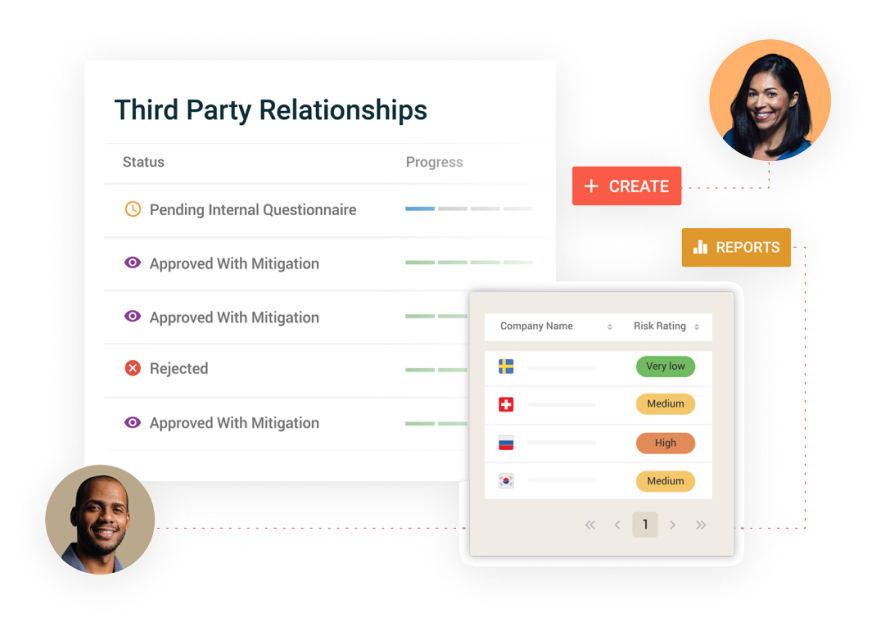
Policy Management
Manage approvals, distribution, and attestation of policies, along with centralized portals for easy access to the latest policies and procedures. Capabilities include:
- Regulatory change management: Identify policies that require updates and timely distribution to employees in response to regulatory changes.
- Automated workflow: Optimize the review and approval process for policies, operating procedures, and work instructions with automated workflows.
- Comprehensive reporting and documentation: Maintain a full audit trail and generate detailed reports to provide clear evidence of compliance to stakeholders and regulators.
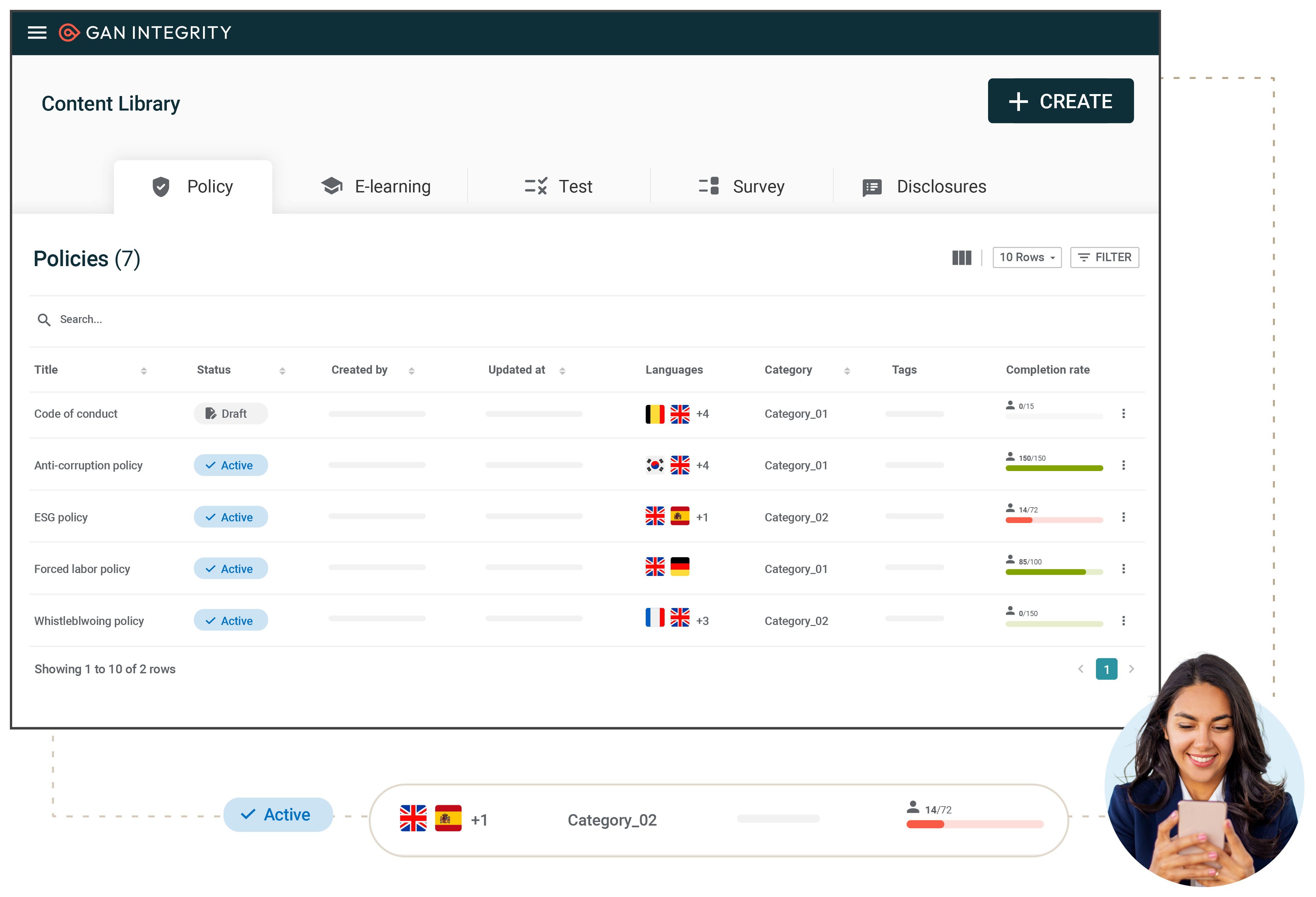
Reporting and Documentation
See everything across your compliance program, and generate reports and dashboards to demonstrate compliance program effectiveness to stakeholders and evidence to regulators. Capabilities include:
- Reporting and analytics: Executive, role-based dashboards to review the effectiveness of your compliance program initiatives.
- Evidence-based compliance: Maintain an auditable trail of all activity with the platform’s integrated and automated audit log.
- Compliance insights: See risk trends and patterns within your program, including third-party and supply chain risk, policies and disclosures.
